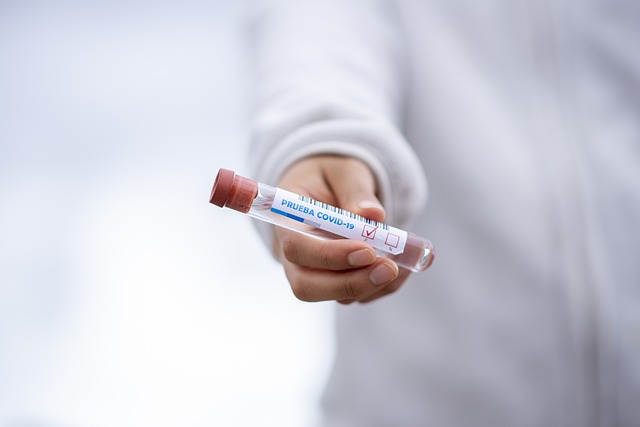The UK Cholesterol Blood Test is a simple method to monitor cholesterol levels, including total cholesterol, LDL ('bad' cholesterol), HDL ('good' cholesterol), and triglycerides. Regular testing is recommended for individuals over 40, with a family history of heart disease or symptoms like high blood pressure or BMI. Preparation includes fasting (8-12 hours) and bringing essential items. Comfortable clothing aids in at-home checks. Understanding test results and maintaining a healthy cholesterol balance (lower total/LDL, higher HDL) is crucial. Elevated cholesterol prompts consultation with a healthcare provider for guidance, lifestyle changes, medication if necessary, and regular monitoring through follow-up tests.
Staying on top of your health is crucial, and conducting regular home health checks can be a game-changer. This article guides you through an essential aspect of self-care: the UK Cholesterol Blood Test. We’ll explore why this test matters, when to consider it, and how to prepare for an accurate result. By understanding the process, you can take control of your health and make informed decisions about managing cholesterol levels.
- Understanding UK Cholesterol Blood Test: Why and When to Get One
- Preparing for Your Home Health Check: What to Expect and How to Prepare
- Interpreting Results and Next Steps After a UK Cholesterol Blood Test
Understanding UK Cholesterol Blood Test: Why and When to Get One
Cholesterol is a waxy substance found in all cells in our bodies, playing a crucial role in maintaining good health. However, high cholesterol levels can increase the risk of heart disease and strokes, making regular monitoring essential for many individuals. This is where the UK Cholesterol Blood Test comes into play. It’s a simple, non-invasive procedure that checks your total cholesterol, LDL (low-density lipoprotein) or ‘bad’ cholesterol, HDL (high-density lipoprotein) or ‘good’ cholesterol, and triglycerides.
Understanding your cholesterol levels is crucial for maintaining cardiovascular health. Many people in the UK are at risk of high cholesterol due to factors like diet, lifestyle, and genetics. Your GP might recommend a UK Cholesterol Blood Test if you’re over 40, have a family history of heart disease, or exhibit symptoms like high blood pressure or a high BMI. Regular testing enables early detection and management of high cholesterol, potentially preventing serious health complications down the line.
Preparing for Your Home Health Check: What to Expect and How to Prepare
Preparing for your home health check is an essential step to ensure accurate and meaningful results. For those undergoing a UK Cholesterol Blood Test, understanding what’s involved can reduce any potential anxiety. This typically involves fasting for a specific period before the test—usually 8-12 hours without food or certain liquids. It’s important to adhere to these instructions as they help calibrate your blood sample accurately.
On the day of your check, gather essential items like identification, your medical history (if available), and any relevant medication you’re currently taking. Some at-home kits may also require a reading device or thermometer, so double-check with your provider what to bring. Comfortably dressing in loose clothing can make the process easier. Remember, clear communication with your healthcare professional or kit instructions will ensure a smooth and informative home health check experience.
Interpreting Results and Next Steps After a UK Cholesterol Blood Test
After receiving your UK Cholesterol Blood Test results, it’s important to understand what they mean and how to interpret them. Your test will provide measurements for total cholesterol, LDL (low-density lipoprotein) or ‘bad’ cholesterol, HDL (high-density lipoprotein) or ‘good’ cholesterol, and triglycerides. A healthy balance is key; generally, lower levels of total cholesterol and LDL are desirable, while higher HDL levels are beneficial.
If your results indicate elevated cholesterol, the next steps involve discussing these findings with your healthcare provider. They can offer guidance on lifestyle changes, such as adopting a healthier diet, increasing physical activity, and potentially suggesting medications to help manage cholesterol levels if necessary. Regular monitoring and follow-up tests may be recommended to track progress and adjust treatment plans accordingly.
Conducting a UK Cholesterol Blood Test at home is a convenient and powerful step towards managing your health. By understanding the process, preparing adequately, and interpreting the results, individuals can take control of their cardiovascular well-being. This article has provided insights into why and when to get tested, how to prepare, and what steps to take afterward. Remember, early detection through regular checks is key to maintaining a healthy lifestyle and preventing potential health issues.
